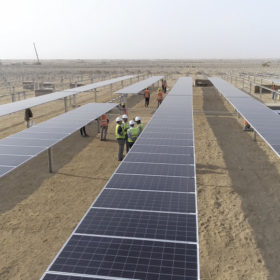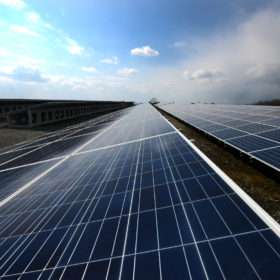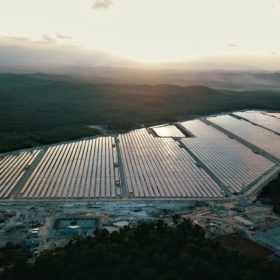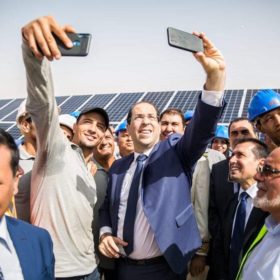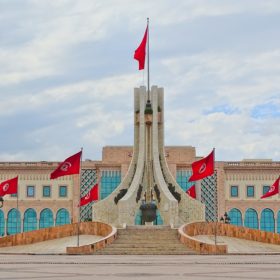Solar is gaining traction in MENA region – but plenty of obstacles remain
Solar deployment continued to pick up in the Middle East and North Africa in 2019, the Middle East Solar Industry Association has said in its annual report.
Winners and prices of Tunisia’s 500 MW PV tender
The Tunisian Ministry of Mines and Energy has confirmed that Norway’s Scatec Solar has secured 300 MW at three sites. It also revealed that France’s Engie and China’s TBEA each picked up 100 MW projects. The lowest bid came in at $0.025/kWh, while $0.034/kWh was the highest offer.
Scatec Solar secured 300 MW of solar capacity in 500 MW Tunisia auction
The Norwegian PV developer was allocated three of the five projects available in the procurement exercise, having reportedly offered to accept $0.025/kWh from utility Société Tunisienne de l’Electricité et du Gaz for the clean power produced by the largest, 200 MW slice of generation capacity available.
2.2 MW/1.5MWh of storage linked to 5 MW off-grid PV plant in Tunisia
Italian gas and oil producer Eni has followed the recent commissioning of a 10 MW solar+storage project in Pakistan with the completion of a similar off-grid installation at an oil field in Tunisia. The power plant was built in partnership with Tunisian state-owned oil company Entreprise Tunisienne d’Activités Pétrolières
Tunisia announces grid-connection of its first solar park
The 10 MW facility is located in Tozeur, in southern Tunisia. The project was also financed by the German development bank KFW under Tunisia’s solar program Plan Solaire Tunisien (PST).
Lowest bid in Tunisia’s 500 MW solar tender comes in at $0.0244
All five offers received by the Tunisian government were under the three-cent threshold. The lowest bid was for a 200 MW solar plant Norwegian developer Scatec intends to build in the Tataouine province.
Tunisia launches tender for another 70 MW of solar
Through this procurement exercise, the Tunisian government hopes to build six solar plants with a capacity of 10 MW each and ten 1 MW small solar parks.
Tunisian module maker Ifrisol to increase capacity to 750 MW
The manufacturer plans to add 350 MW of manufacturing capacity at its two sites in Tunisia by next year. The ramping up is due to new orders from India and other foreign markets.
Construction begins on Tunisia’s tender utility-scale PV project
The 10 MW project in the Tatouine governorate was selected in the 70 MW solar tender which the Tunisian government issued in May 2017. The plant is being built by Italian oil company Eni and Tunisian oil provider ETAP.
Italy and Tunisia revive plans for 600 MW interconnector
The power line, under development by Italian transmission company Terna and Tunisian gas and electricity group STEG since 2003, was originally conceived to export power generated in Tunisia to Italy but is now based on an electricity exchange in the opposite direction.
